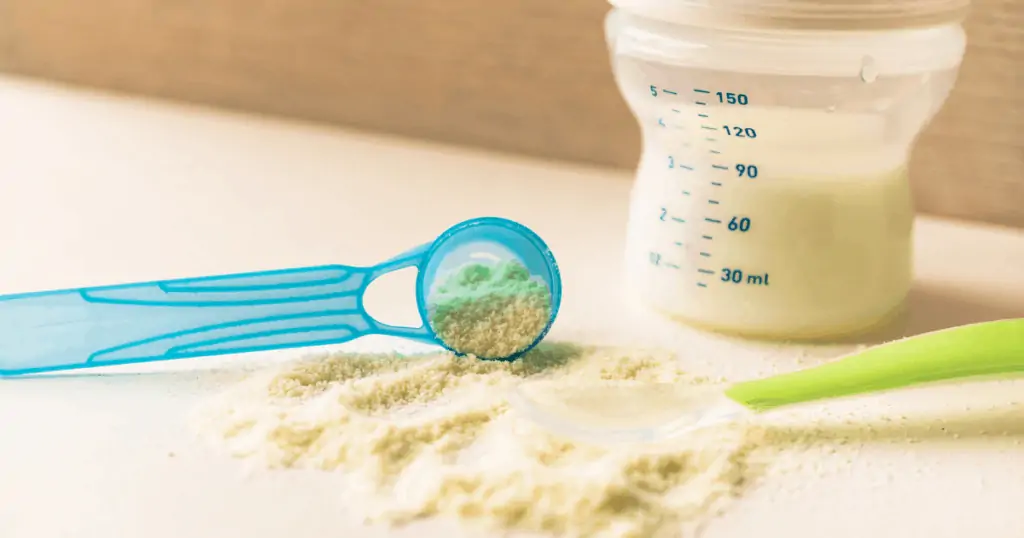What’s the Best Formula for My Baby?

We are often asked, as lactation counselors, what formula is best for my baby?
(Yes lactation counselors are experts in ALL modes of infant feeding, not just breastfeeding.) This also comes up when we are supporting families as postpartum doulas. For us, the best baby formula should follow three simple rules.
As a reminder, we are not licensed medical professionals and nothing in this blog should be taken as medical advice. Okay – back to the blog!
- The formula you use should be tolerated by your baby. Not every baby likes every formula. Call your pediatrician if your baby has a severe rash, blood in her stool or chest congestion after eating, or any time you are concerned about your baby’s health. That’s what they are there for!
- The formula you use should be readily available. We recommend it is one you can drive to almost any store and purchase. It should be approved for sale in the US by the Food & Drug Administration.
- The formula you use should be in your budget, financially. All formulas approved for sale in the US by the Food & Drug Administration have met standards of safety and that means they are all safe. Buy what you can afford.
If your budget can accommodate it, we recommend liquid baby formula (ready to feed or concentrated) for at least the first three months.
Why? Simply speaking, liquid formula is sterile and powdered formula is not. That means to properly prepare powdered formula, you’ll need to first heat the water to 158 degrees Fahrenheit, then add formula according to directions, then allow water to cool to a safe temperature for your baby. Does this sound like something you want to do at 2:30am? Yeah, me neither.
After three months, your baby’s risk of infection due to cronobacter decreases, and you can most likely switch safely to powdered formula without sterilizing it first (although there is nothing wrong with continuing this practice for as long as you want to.)
I know what you’re thinking; but what about those fancy European formulas???!!??? Isn’t everything better from Europe?
The short answer is, no. Imported formulas bring concerns of storage and handling, availability and language barriers. I’ve personally seen European formulas in households where the label wasn’t in English. How can that be safely prepared if you can’t read the instructions? I’ve also personally known families who couldn’t get their imported formulas because of supply chain issues thanks to COVID-19.
So, when we say the formula you use should be tolerated by your baby, what does that mean exactly? Remember, most babies have incidents of spit up and gassiness – humans are gassy, after all. Trust your instincts, and when all else fails, ask the experts: your lactation counselor and pediatrician. We can help you understand normal biological behavior and point out potential warning signs.
Does brand name really matter? NOPE! In fact, many so-called generic label formulas are the exact same as “brand name” formulas.
Finally, remember that the way you feed your baby isn’t an indicator of how good of a parent you are. Feed your baby with love in the way that works best for you. You got this!
For more info on this topic check out our blog post: Newborn and Infant Bottle-Feeding | Formula Fed Babies.
